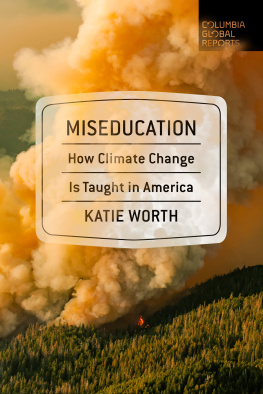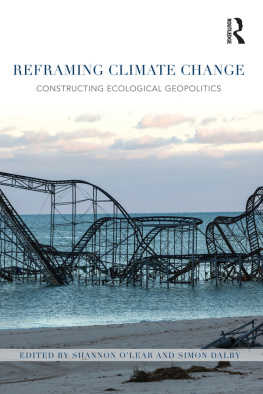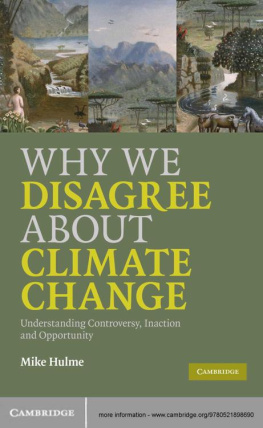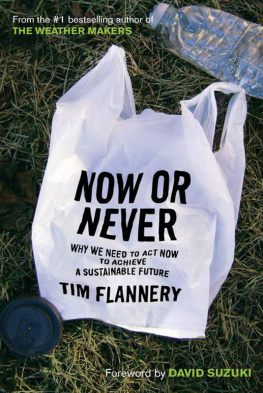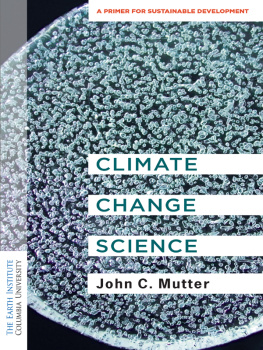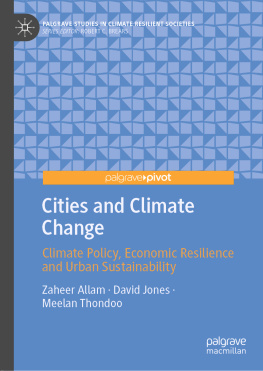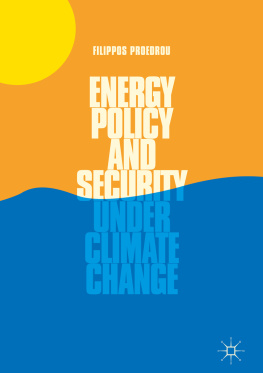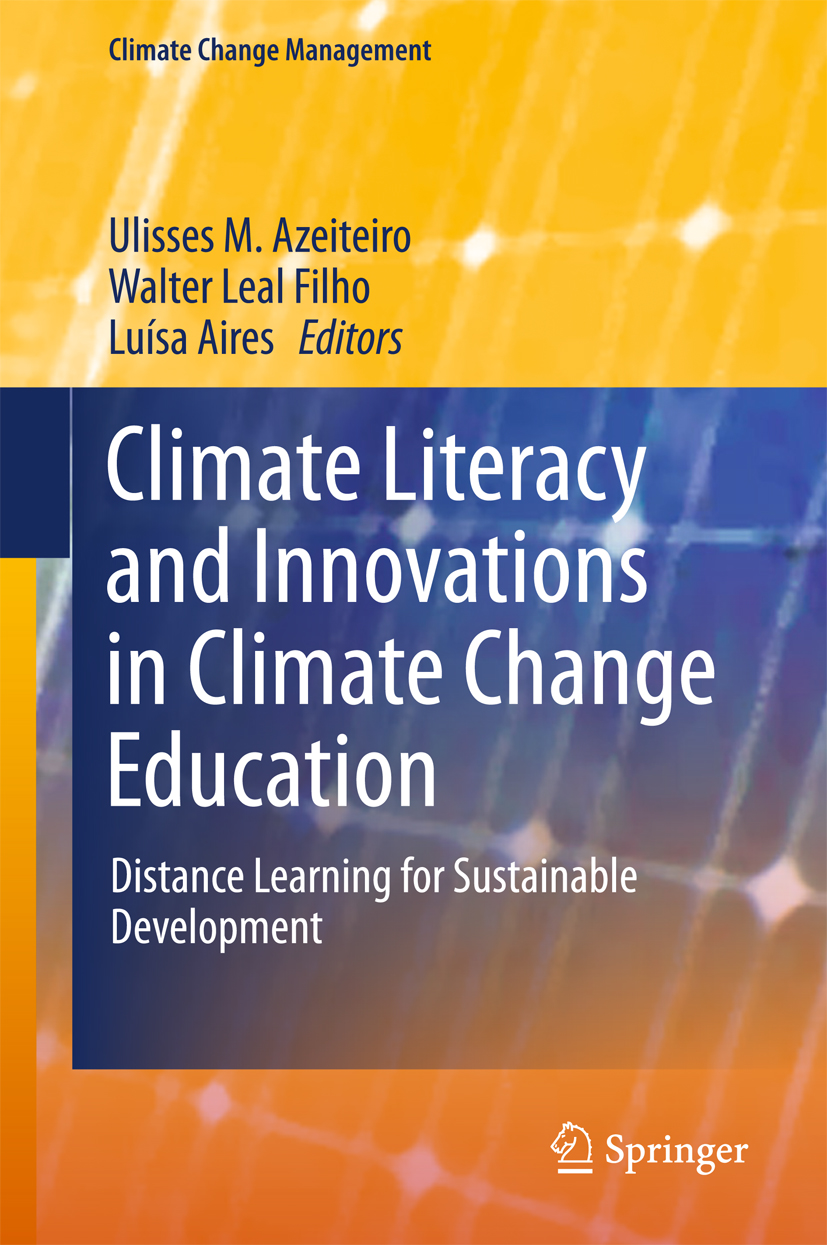Editors
Ulisses M. Azeiteiro
Department of Biology, Centre for Environmental and Marine Studies (CESAM), University of Aveiro, Aveiro, Portugal
Walter Leal Filho
School of Science and Environment, Manchester Metropolitan University, Manchester, UK
Lusa Aires
Department of Education and Distance Learning and CEMRI, Centre of Studies on Migrations and Intercultural Relations, Universidade Aberta, Porto, Portugal
ISSN 1610-2010 e-ISSN 1610-2002
Climate Change Management
ISBN 978-3-319-70198-1 e-ISBN 978-3-319-70199-8
https://doi.org/10.1007/978-3-319-70199-8
Library of Congress Control Number: 2017957656
Springer International Publishing AG 2018
This work is subject to copyright. All rights are reserved by the Publisher, whether the whole or part of the material is concerned, specifically the rights of translation, reprinting, reuse of illustrations, recitation, broadcasting, reproduction on microfilms or in any other physical way, and transmission or information storage and retrieval, electronic adaptation, computer software, or by similar or dissimilar methodology now known or hereafter developed.
The use of general descriptive names, registered names, trademarks, service marks, etc. in this publication does not imply, even in the absence of a specific statement, that such names are exempt from the relevant protective laws and regulations and therefore free for general use.
The publisher, the authors and the editors are safe to assume that the advice and information in this book are believed to be true and accurate at the date of publication. Neither the publisher nor the authors or the editors give a warranty, express or implied, with respect to the material contained herein or for any errors or omissions that may have been made. The publisher remains neutral with regard to jurisdictional claims in published maps and institutional affiliations.
Printed on acid-free paper
This Springer imprint is published by Springer Nature
The registered company is Springer International Publishing AG
The registered company address is: Gewerbestrasse 11, 6330 Cham, Switzerland
Preface
Climate change, as a global and local problem, and e-learning, as a prominent innovation area, are two intersected issues in this book. As a result, we can find an interdisciplinary mosaic in which the researchers voices build scientific dialogs.
Regarding e-learning and Open Education, the book proposes one main idea: accountability of e-learning and Open Education in Climate Change Education.
E-learning allows add-on teaching and learning; it represents a different paradigm of teaching and learning. Therefore, the analysis of models and methodologies for sustainable e-learning is a fundamental basis to understand it as a powerful method for climate education.
Recent changes in social, scientific, and educational acceptance of e-learning and Open Education, with movements including MOOCs and OERs, put this educational perspective in a prominent place. However, multiple initiatives in this field must be accompanied by research and educational practices for new teaching and learning ecologies. Those ecologies encourage different ways of thinking, teaching, and learning; they are founded in constructs such as open and free education, cultural and social media, ubiquitous learning, m-learning, e-communities, personal learning environments (PLEs), e-participation, or e-citizenship that are challenging the ways teaching innovate on teaching and students innovate on learning.
Through the book chapters, several authors contribute to minimize the gap between practice and research in the development of sustainable e-learning in climate change education. This is also a way of innovating.
Twenty-two double-blind peer-reviewed chapters from Europe (Denmark, England, Germany, France, Latvia, Italy, Spain, and Portugal), Asia (India), Australia, Africa (Burkina Faso, Democratic Republic of the Congo, Malawi, and South Africa), South America (Brazil), and North America (Mexico and USA) cover different subjects related to the theme of this book. Together with massive open online courses (MOOCs), open educational resources (OER), and communications technology (ICT), this book contributes to the discussion about e-learning and Open Education in Small Island States, Climate Refugees, Climate Smart Agriculture in developing countries (the Global South), Climate Literacy, Health curricula and Teaching, participation and governance systems, interdisciplinarity, and interculturality.
Human resources resemble a crucial bottleneck in certain parts of the world, as a lack of qualified human resources can hinder the introduction of renewable and energy efficient technologies, as well as the wider application of appropriate technology and, even more importantly, maintenance of those technologies. Concerning capacity building, for example in the field of sustainable energy, recommendations include the use of lifelong learning measures such as dedicated capacity building and continuous professional development programmes, or the extension of curricula to better prepare learners for employment in green economic sectors. These short and longer-term measures should focus on building interdisciplinary, multidisciplinary skills and knowledge as required in sustainability related jobs. Franziska Wolf, Franziska Curran, Ellen Pflaum, and Hannah Ramic in Chapter address the challenges and opportunities which open online interventions, such as massive open online courses (MOOCs), combined with open educational resources (OER), can offer to provide wider and free access to interdisciplinary high-quality knowledge provision. An area for which this is in high demand is energy access, energy security, and energy efficiency (EASE) and its relation to climate change, for which there is a growing demand across professions and age levels, and a deficit especially in lifelong learning in the developing world. This will be illustrated through the key online component of a dedicated lifelong learning model developed by the European funded EDULINK project L3EAP (short for for Energy Access, Security and Efficiency in African and Pacific Small Island Developing States). It is argued that approaches like the L3EAP mentored MOOC have the potential to play an important role in building and strengthening human capacities in less-developed regions of the world, where awareness of and knowledge about sustainable energy technologies and climate change can be lacking. The authors conclude that embracing ICT solutions can be a valuable cross-cutting measure to address the lack of human capacity in distant, less-developed, and remote locations, such as Small Island Developing States (SIDS), which may constrain a quicker uptake of sustainable energy technologies.


